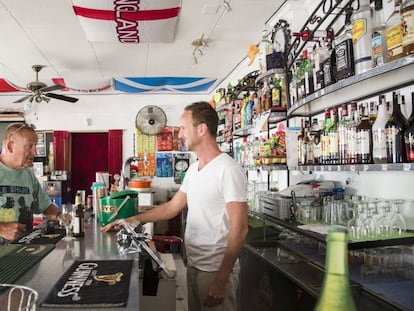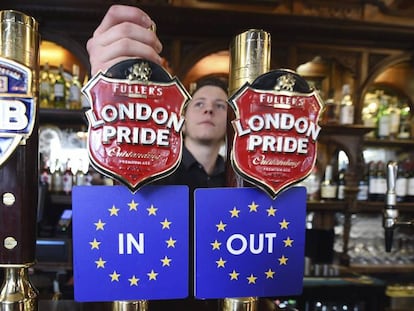Spanish espionage enters Brexit debate
Ex-British intel chief uses Spain’s services as an example of why it’s better to remain in the EU

Speaking on the BBC last month, the editor of The Spectator, a conservative weekly magazine, stated that cooperation among EU members on security issues was pointless, among other things because Spain’s intelligence services are “a disaster.”
Just a few minutes later, the same program interviewed Sir John Sawers, who was head of Britain’s MI6 foreign intelligence service from 2009 to 2014. Sawers came out in defense of his Spanish counterparts, stating that “contrary to what has been said, they are very, very good.”
National security is the latest source of controversy between supporters and detractors of a British exit from the European Union.
At the operational level, the British and Spanish teams share a great mutual respect
SirJohn Sawers, former MI6 chief
And just like with the issues of economy, sovereignty and immigration, it is practically impossible for the average citizen pondering which way to vote on June 23 to determine who is telling the truth and who is lying about security, and whether Britain will be safer in or out of Europe.
Sawers, who will vote to remain part of the EU, is using Spain’s National Intelligence Center as evidence that Britain can better defend itself against Islamist terrorism, cybercrimes and other potentially serious threats – such as Vladimir Putin’s Russia – within the EU.
Sign up for our newsletter
EL PAÍS English Edition has launched a weekly newsletter. Sign up today to receive a selection of our best stories in your inbox every Saturday morning. For full details about how to subscribe, click here.
“We are only secure because the wider Europe is secure, pulling out will make it more dangerous,” he told the BBC. He used the terrorist attacks in Brussels last March as an example, noting that “thanks to data sharing within the EU, the French were able to transfer DNA and fingerprints of one of the Brussels bombers – the kind of thing which used to take months – within minutes.”
But Justice Secretary Michael Gove, who supports Brexit, said that Sir John Sawers is “flat wrong” and alleged that Britain’s secret services and police are being hampered by European judges who tend to put human rights ahead of security.
To make things even more confusing, Sawers’ predecessor at MI6, Sir Richard Dearlove, wrote in an article in March that the cost of leaving the EU, in terms of national security, would be low.
“Britain is Europe’s leader in intelligence and security matters and gives much more than it gets in return,” he wrote in Prospect magazine.
Mutual respect
As the statements by Dearlove and the editor of The Spectator evidence, what’s driving the Brexit movement is a feeling of British superiority over the rest of the continent.
Sir John Sawers, who does not share this attitude, spoke with EL PAÍS this week inside the bar of a London hotel that used to be a meeting point for spies during World War II.
Asked to explain why he told the BBC that Spain’s intelligence services (CNI) were “very, very good,” he replied that it is one of the most “admirable” services in Europe.
He called CNI director Félix Sanz, “whom I know well,” an exemplary public servant, both as a general and as a chief of intelligence.
The Spanish actively helped British intelligence when we were preparing for potential threats against the Olympic Game Sir John Sawers
“At the operational level, the British and Spanish teams share a great mutual respect. Both also share decades of experience fighting terrorism, which means they have special abilities and a deeply rooted resilience when it comes to addressing the current threat of Islamic terrorism. The Spanish actively helped the British intelligence services, for instance, when we were preparing for potential threats against the London Olympic Games of 2012.”
Sir John Sawers used to be a high-ranking diplomat before heading the intelligence services, and said he has spent most of his life trying to build bridges between nations, especially within Europe.
“Leaving the EU would undermine all that work,” he said. “The EU has been the best defense against conflict within Europe during the last 70 years.”
Breaking that link, he added, would mean a risk of breaking the best option for maintaining peace and stability on the continent.
English version by Susana Urra.









































